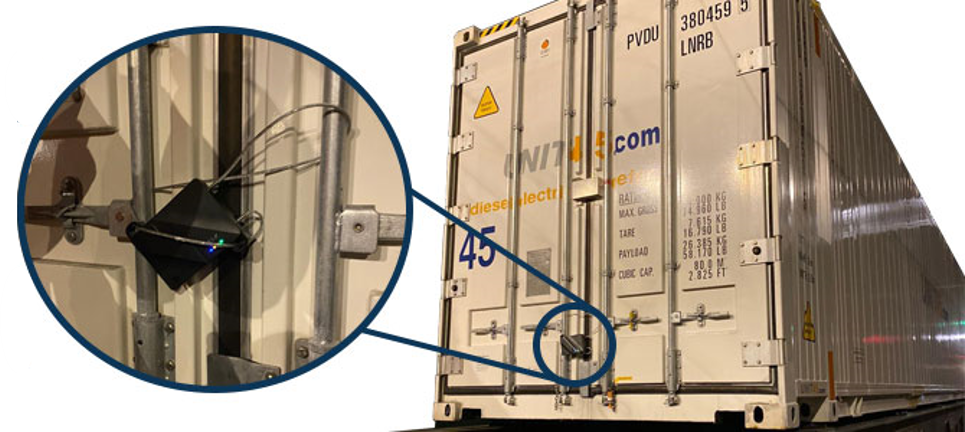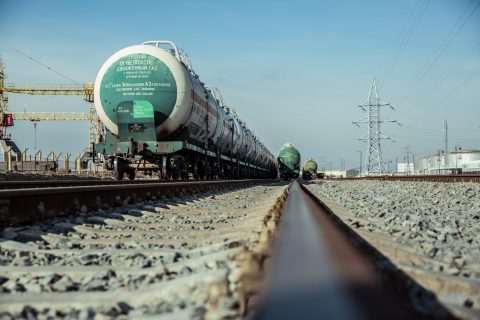Blocktrains with sanctioned goods on rail this summer

After several test shipments, China-Europe rail transport of sanctioned goods through Russia will see regular blocktrains as soon as this summer. This was confirmed by FELB, an RZD Logistics-subsidiary during RailFreight Live on Friday 19 June. “We already have several inquiries, a blocktrain will be set up very soon.”
FELB and partners recently carried out a test shipment of milk powder on the northern route via Manzhouli/Zabaikalsk. On this route, cargo crosses the Russian-Chinese border in Inner Mongolia, a region northeast of China. There was no big difference between this route and the regular route, and the test can be considered successful, said Yulia Kosolapova, managing director of FELB during the news broadcast.
On 21 March, the first train departed from Duisburg in the direction of Xi’an, carrying salmon originating from the Netherlands. A second shipment followed soon after. These test shipments took through the regular route via Russia and Kazakhstan. Now that both routes have been tested, the route can be launched as a regular route, said the FELB respresantative.
This is news the market has been waiting for long enough. In June 2019 the Russian government announced that it would lift the ban on overland transport of sanctioned goods such as fresh foods and agriculture products. Until now, European shippers were bound to air or ocean freight, or had to take a detour when opting for the train for their shipment of sanctioned goods. After the announcement, a long period of preparations followed.
Xi’an ready
During the same broadcast of RailFreight Live, Xi’an said to be prepared for the expectedly large volumes of fresh goods. Shao Boer of the Xi’an international Inland Port Multimodal Transporation company explained how the platform has worked around the restrictions with import certificates.
In Xi’an, there import certificates for meats transported by rail and frozen seafood transported by air. In order to accept frozen seafood by rail, this cargo is brought by truck to the airport for clearing after arrival in Xi’an. “Those certificates are the foundation for the import of meat and seafood”, he said.
“We are currently purchasing reefer containers and reaching out to clients. Hopefully within the first half of the year we could make a breakthrough. Xi’an has a great of consumption for meat and the demand is huge. Especially for beef, as there is a large Muslim community in Xi’an.”
Watch the RailFreight Live broadcast of Friday 19 June here.
Also read:
- All you need to know about the new fresh route through Russia
- Poland gears up to transport food to China via Russia by rail
- Fresh products on the way to Russia by train, finally
- First shipment of ‘sanctioned goods’ through Russia planned
- Will EU transit via Russia become possible in 2020?
- From Atlantic to Pacific by rail and still fresh
- Russia forms new rules for electronic seals transit goods
- Webinar: Lifted Russian ban on transit traffic: big advantage with many questions
- Russia lifts ban on transit of sanctioned EU products by rail
You just read one of our premium articles free of charge
Want full access? Take advantage of our exclusive offer






